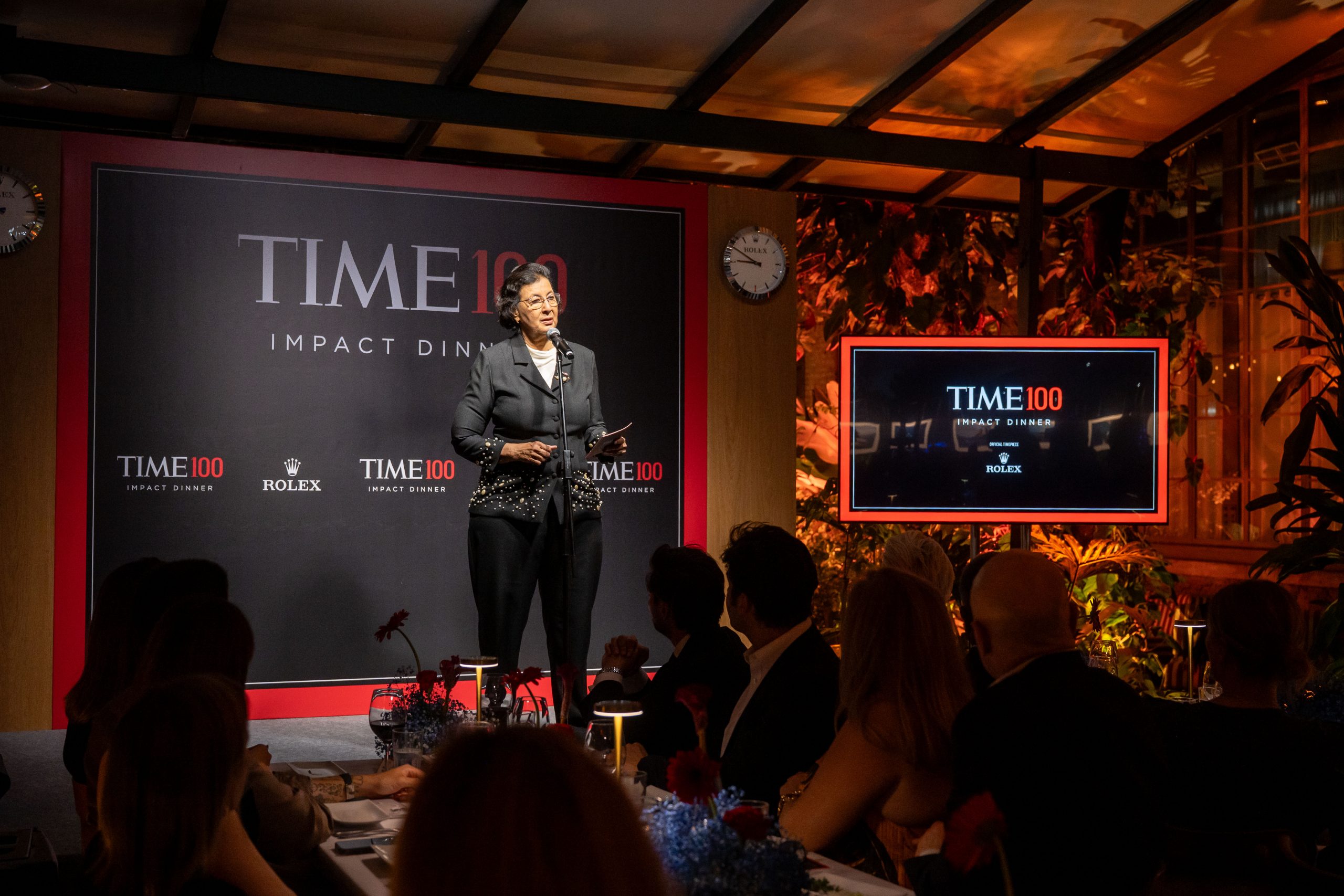Leaders discussed the most pressing climate issues—and reasons for hope—ahead of the TIME100 Impact Dinner: Leaders Creating Climate Action held at Casa Camolese in Rio. Global leaders will be gathering this month in Belém, Brazil for COP30, the United Nations climate summit.
Kara Hurst
[time-brightcove not-tgx=”true”]
Kara Hurst, Amazon’s chief sustainability officer, spoke of the challenge of addressing climate change fast enough as communities around the world face the brunt of its impacts.
“We really have a limited amount of time with the climate crisis,” she says.
Hurst spoke of the ways Amazon is looking to utilize new technologies to serve customers and reduce emissions—from minimizing packaging to electrifying fleets of delivery vehicles.
Amazon’s disaster relief team has also been able to use new technology to better serve communities after natural disasters, she says. “We’ve been able to utilize AI in a lot of ways to really speed up the response to those disasters and provide us better information that indicates where first responders can go and help the safety of those communities very, very quickly.”
Tzeporah Berman
Despite wealthy countries pulling back on climate commitments, climate activist Tzeporah Berman, who chairs the Fossil Fuel Treaty Initiative calling for a new global pact to limit the production of fossil fuels, remains hopeful that there are opportunities to bring other nations to the table.
“A line has been drawn between the countries that are willing to step out and work on fossil fuel phase out and the countries that are holding back and the leaders that are denying the science,” she says. “People realize that it will benefit them to actually have a plan.”
She hopes to see more countries cooperate to create a plan to support a managed decline in the use of fossil fuels. “A lot of countries, like the United States and Canada, are doubling down on fossil fuel productions,” she says. “I’m really inspired by the countries who are standing up and starting to create a path that is science led and based on cooperation between countries—because no country or company can do this alone.”
Leah Seligmann
Though it seems as though the world is no longer on track to meet the 1.5 goal set out in the Paris Agreement, sustainability leader Leah Seligmann maintains that a lot of progress has been made since the treaty was first established ten years ago. “On one hand, we’ve seen more progress in the last decade than we could ever have imagined,” says the CEO of The B Team. “We were on track for a 4 degree world, now we’re on track for a 2.4 degree world.”
But countries need to be more ambitious, she says. “When you get to this point in a transition, it is super hard. This isn’t the time when we can just change lightbulbs and all save money,” she says. “This is the time where we have to do bigger investments that are harder and riskier to really deliver what’s needed. The urgency couldn’t be greater. The need couldn’t be greater.”
Wade Crowfoot
Since 2019, Wade Crowfoot has served as California’s natural resources secretary, working to protect and strengthen the state’s natural landscapes.
California is already facing some of the more extreme impacts of our warming planet. Climate change contributed to the conditions that caused wildfires to burn through over 37,000 acres and destroy more than 16,000 structures in Los Angeles in January.
It’s for this reason that Crawfoot says adaptation is so important. “Adapting to these changes, building resilience to these climate-driven threats is now a matter of public safety,” he says.
Crowfoot says he is optimistic that the state can learn from global leaders present in Rio, and believes that leaders should be moving quickly to find solutions that both avert the worst impacts of climate change and protect the people most vulnerable.
“This is no longer a crisis of ambition, it’s a crisis of implementation,” he says.
Jennifer Geerlings-Simons
Jennifer Geerlings-Simons, president of Suriname, was candid about the lack of global progress on limiting warming to the targets laid out in the Paris Agreement.
“It looks like we will not be able to achieve the 1.5 degrees, so we have actually not done very well in my opinion,” she says.
Geerlings-Simons is hopeful, however, that Indigenous people who live in and rely on forests might serve as an example for how to manage natural resources while still reaping economic benefits.
But in her eyes the urgency of the climate crisis cannot be understated. “Climate change is here,” she says. “We see it. I hope that people are seeing it, and more inclined to do something about it.”

